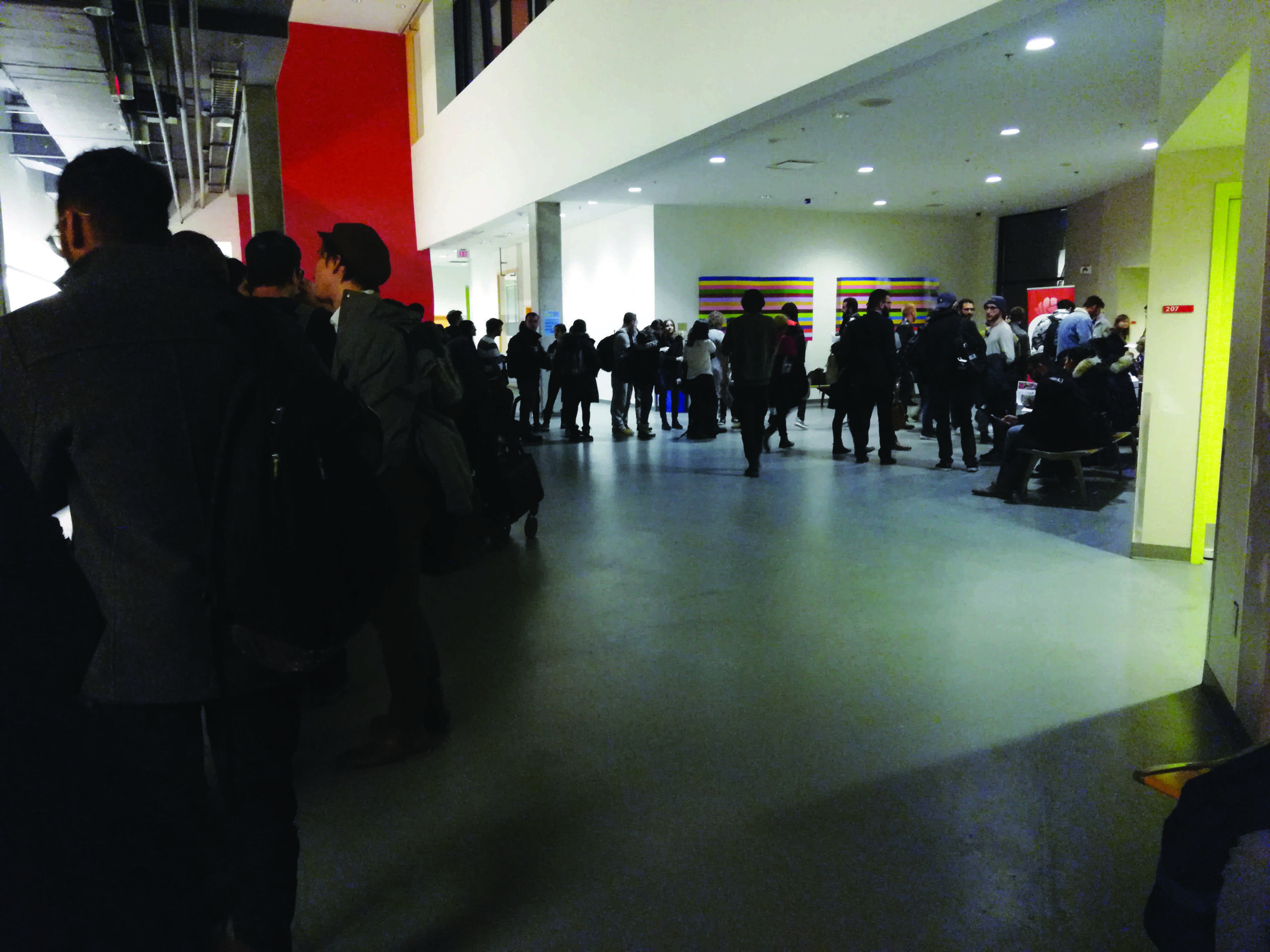Victoria Silman | News Editor
Featured Image: Students gathered at the AGM to give their opinions and vote for motions. | Victoria Silman
The YFS Annual General Meeting (AGM) saw a decent turn-out, bringing together a variety of views on important issues within the university.
Held on November 29, students packed into an Accolade West lecture hall, voting cards and thick booklets outlining the agenda in hand.
Members of the student community were permitted to submit motions to the AGM to be discussed, and ultimately voted upon.
“The YFS is defined by its members, and within the AGM, they had an opportunity to submit motions to help decide on the future direction of the organization. Our work will be reflective of the motions passed at the AGM, and we will do as is outlined within our Constitution and By-Laws to fulfill the actions we have been mandated to do by the membership,” says Sébastien Lalonde, vice-president of campaigns and advocacy for YFS.
Of the issues discussed in the meeting, which started approximately an hour later than planned and extended well into the evening, the most notable were: the audit of the YFS budget, a motion to institute online voting in YFS elections, keeping GO transit and Viva running on campus, the removal of TPS from campus, and a motion to reject the provincially mandated free-speech policy.
An audited financial statement was approved, outlining the spending of the YFS. Audited by Regina Vasner from the accounting firm Grant Thornton LLP, the statement showed an increase in revenue from $1,932,028 to $2,010,271 between 2017 and 2018, including an increase in salaries and benefits for YFS employees from $1,010,936 to $1,052,141. Despite this, some cuts were made in other areas, including unaccounted-for expenses and member services—which decreased due to the labour disruption.
Furthermore, the listed motions were carried with the exception of online voting, which failed in a vote of 102 opposed and 78 in favour, including votes to oppose from most YFS executives.
“The members of the YFS voted in accordance with their own beliefs and opinions, and we, as an executive, cannot comment on those beliefs or opinions,” Lalonde says.
A second-year student, who wishes to remain anonymous, expresses their frustration with the meeting. “As soon as online voting failed, you could see at least 30 people leave the room at once. I also want to point out that the AGM was scheduled from 5 p.m. until 11 p.m. We started at 6 p.m., and I left at around 11:30 p.m., at which point we were not even halfway through,” they say.
According to Lalonde, the YFS “promoted the AGM well in advance, and were committed to assuring that as many students as possible would be able to attend. We were happy to see that the AGM was well-attended and continue to encourage students to participate in future Annual General Meetings,” he says.
Jacob Linton, a second-year urban studies student disagrees, stating: “Each student is paying for the YFS from their tuition and should have as equal access as any other student, but the way it’s organized, only those with few exams and outside commitments are able to make it.”
Fifth-year political science student and director of EvolveYU, Priyank D’sa echoes these sentiments, saying: “Though it was one of the highest attended YFS AGMs in recent history, the poor publicity and late notification of the meeting by the YFS makes it challenging for students not in the know to mobilize, even when they are in the majority on an issue.
“Allowing students to vote on AGM motions online could once again prove to be an equitable solution to a lack of accessibility.”


